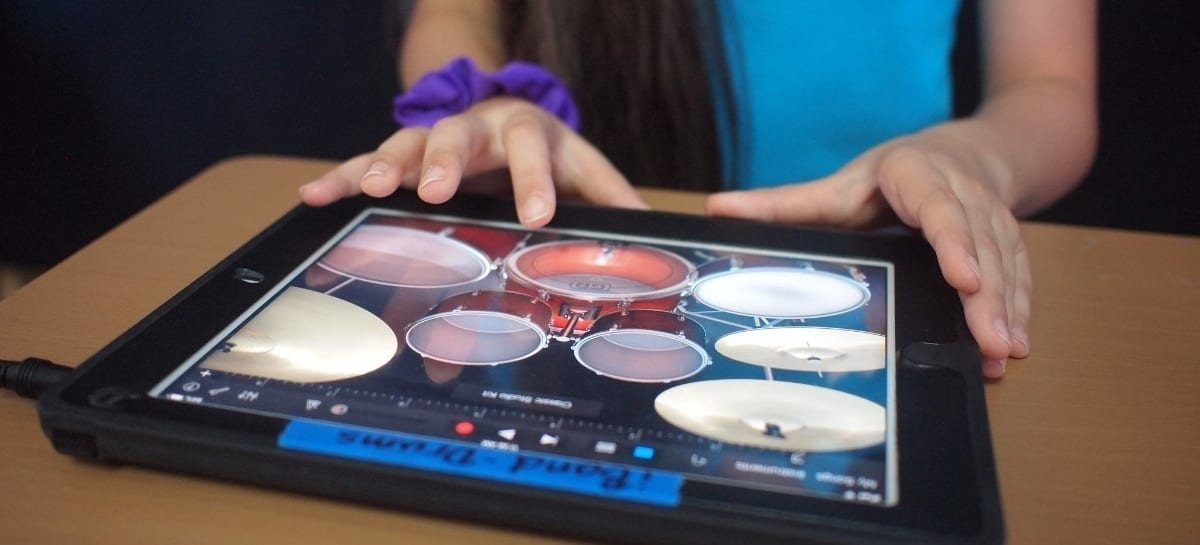At first blush, one-to-one device programs, through which schools or third party partners offer students free laptops or tablet computers to use at home and in school for the year, sound like a great idea, and they largely are. Such programs give many students – and often, with the encouragement of the school, their families as well – access to technology they otherwise could not afford. That is a big win for those, like the ACLU, who view the universal provision of a top quality education as an important pathway towards greater equality.
But hidden behind those positive first impressions are some real concerns that must be accounted for – at the state or district level – before such programs are put into place.
One significant concern involves student privacy with respect to school officials. As a report published in June by the ACLU of Rhode Island revealed, many schools take the position that students have no expectation of privacy when it comes to using one-to-one devices. This approach means school officials might decide to remotely activate a one-to-one laptop’s webcam to watch and listen to students at home – something that occurred in Pennsylvania’s Lower Merion School District, where school officials took thousands of pictures of students in their homes, including of 15-year-old student Blake Robbins while he was sleeping in his bed. “No privacy” policies also permit schools to use the devices to track students’ locations, to review their keystroke and browsing histories, and to access all the files stored on the device, including personal documents, emails, photos, and videos. This also allows them to violate the privacy of non-student family members who use the devices.
For poorer students, one-to-one device policies confront them with a no-win decision: they can either give up their privacy in return for receiving a one-to-one device, or they can choose to keep their privacy, be denied a device, and lose access to a valuable educational tool. No student should have to surrender their privacy in order to receive the best education possible.
One-to-one device “no privacy” rules actually mean different things to different students. For wealthier students, these policies mean very little, because those students can simply choose to bring their own devices to school, which are inaccessible to teachers and administrators. On the other hand, for poorer students, these policies confront them with a no-win decision: they can either give up their privacy in return for receiving a one-to-one device, or they can choose to keep their privacy, be denied a device, and lose access to a valuable educational tool. No student should have to surrender their privacy in order to receive the best education possible.
One-to-one programs can also expose students to privacy violations from non-school entities. When a private company provides one-to-one devices to students, those devices can be configured to collect personal student data that the third party can monetize through targeted advertising and other means. You know the expression that there’s no such thing as a free lunch? Well, without better policies in place, there is also no such things as a free one-to-one device.
Sound one-to-one device program policies recognize that, while such programs are certainly worth pursuing, rolling them out without adopting strong privacy laws or policies places students and their families at risk. It also can stifle students’ educational growth, because they may choose not to engage in research or electronic communications about certain subjects – such as sexual orientation or unpopular political perspectives – if they think their school’s teachers and administrators are watching them. And if a student wants to learn without being bombarded by commercial advertisements, a one-to-one device shouldn’t deprive a student of that choice.
The ACLU has published model legislation that state legislatures can use to protect students and families who use one-to-one devices. In fact, with the help of our model bill, Rhode Island is now doing just that. Even in the absence of state action, individual districts can use the ACLU’s model to shape their own privacy policies. In the end, with the right policies in place, students who wish to participate in one-to-one programs will not have to choose between bettering their educations and protecting their privacy. They can choose both.
***
Chad Marlow is Advocacy and Policy Counsel at the ACLU, where his focus is on privacy and technology. Mr. Marlow’s work on issues ranging from student privacy, to police body cameras, to government surveillance, to data privacy has been the subject of media coverage throughout the United States, as well as in Europe and South America. Mr. Marlow is the author of ten ACLU model bills, and he spearheaded the ACLU’s nationwide #TakeCTRL and Community Control Over Police Surveillance (CCOPS) campaigns. Mr. Marlow holds a J.D. from the University of Virginia School of Law and a B.A. in Government from Connecticut College. In 2007, City & State (New York) newspaper named Mr. Marlow to its “Rising Stars: 40 Under 40” list.
Image: “image_056” by Brad Flickinger is licensed under CC BY 2.0. The original picture was cut to 1200×545 for this blog.


